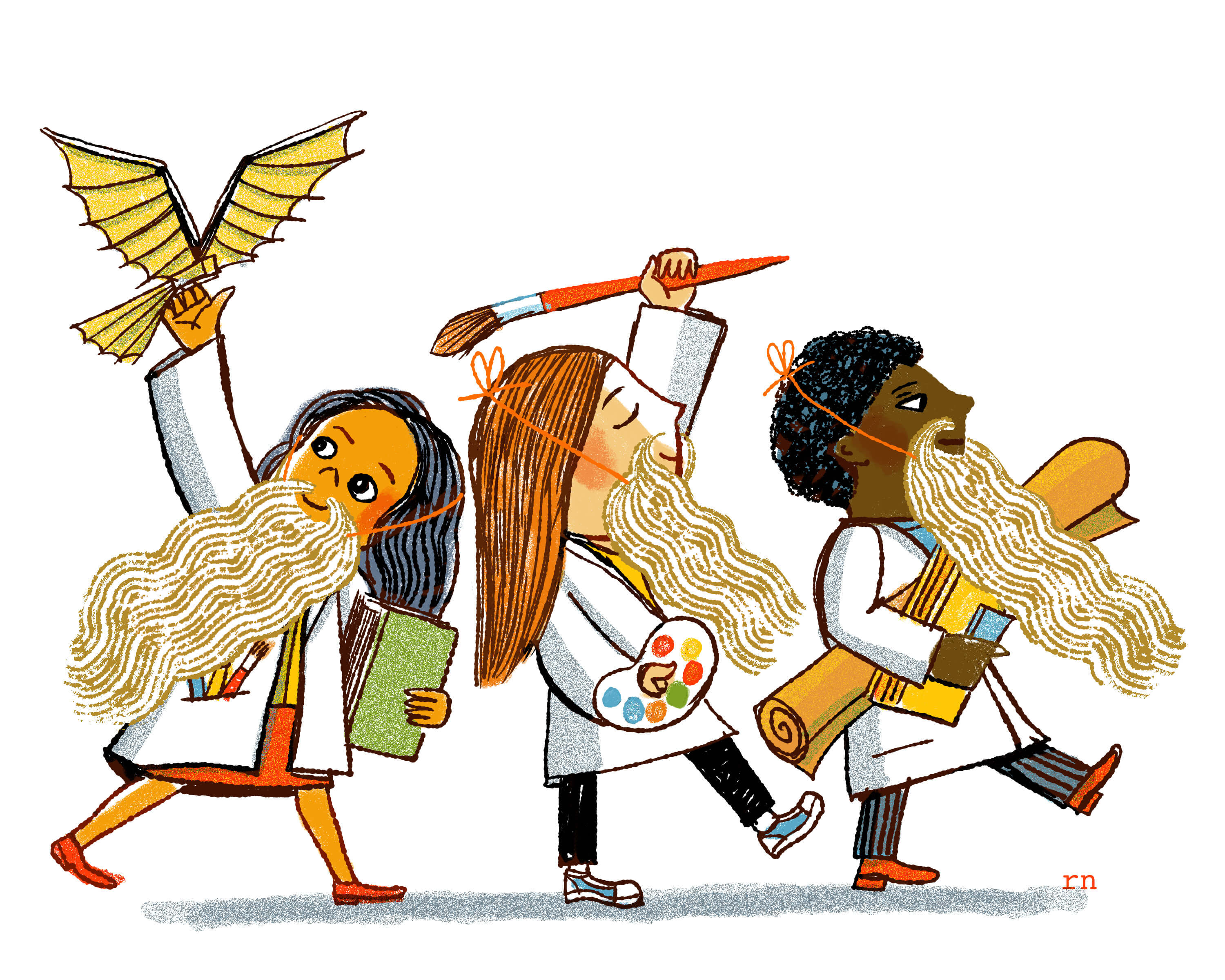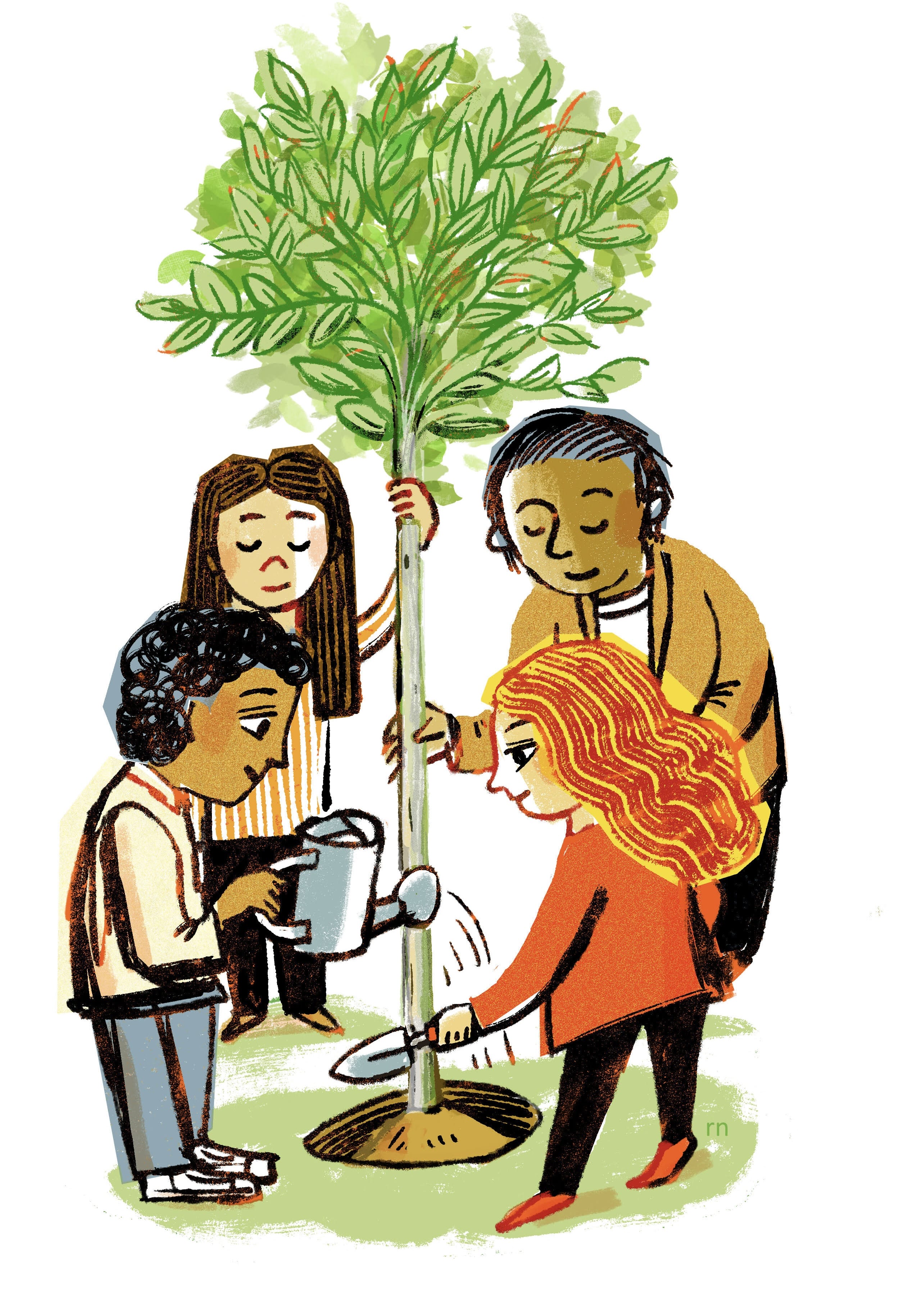“Learning Never Exhausts the Mind.” ~ Leonardo da Vinci
Leonardo da Vinci was a genius, but not a typical genius. As opposed to the single, focused achievement of a typical “genius,” da Vinci displayed exceptional creativity, intellect, originality, and achievement in multiple fields and genres. Leonardo da Vinci’s name is synonymous with the term, “Renaissance” man, or a person of many talents and interests who possesses profound understanding in multiple fields.
The quality and significance of da Vinci’s paintings and his technical contributions to painting are unmatched by any other single painter in history. His achievements were fueled by his feverish observations of nature, his experiments on the human body, and his innovations related to space, symmetry, perspective, and the chemistry of painting. Although best known as a painter. da Vinci was most of all a student—of everything—and a really good student. Da Vinci’s contemporaries attribute to him two related sayings that reflect his love of learning, his unquenchable curiosity, and his renowned work ethic. These are stated as either “Learning never exhausts the mind” or “Learning is the only thing the mind never exhausts, never fears, and never regrets.”
In his extensive notebooks, da Vinci wrote about his philosophy of life, and included stories and fables to explain his thinking. Although he lacked the kind of formal education that would have brought him respect as an intellect, he educated himself beyond most of his contemporaries by sheer force of will and hard work. Da Vinci’s notebooks are almost as remarkable and revered as his paintings because of the wisdom of a lifetime of study recorded within their pages.
Two fables that illustrate well da Vinci’s philosophy on learning derive from his keen observation of natural processes. In one, a flint stone protests being struck by steel and asks to be left alone. The steel explains that, if the flint will be patient, it will see “what a marvelous result will issue forth.” The flint stone decided to be patient and endure its discomfort and trouble. As a result of this patience, the flint stone and steel produced the marvelous element of fire. Da Vinci provides this analogy:
This is said for those who are dismayed at the outset of their studies, and then set out to gain mastery over themselves and in patience to apply themselves continuously to those studies, from which one sees as a result things marvelous to relate (Leonardo’s Notebooks: Writing and Art of the Great Master, 400-401).
In another fable from his notebooks, da Vinci relates the story of a razor that determined to preserve the integrity of its blade by hiding itself away and passing its life “in tranquil ease.” After hiding for some time, the razor re-emerges, only to discover that it had acquired rust and corruption, from which observation it deeply regretted its decision. Da Vinci suggests that “the same thing happens with minds which, in lieu of exercise, give themselves up to sloth; for these, like the razor, lose their keen edge, and the rust of ignorance destroys their form” (Leonardo’s Notebooks: Writing and Art of the Great Master, 401).
With WSD”s choice of theme for school year 2018-19, we hope to inspire students to indulge their creativity and curiosity unbounded by a single topic or subject, but studying the disciplines together as one study. We also hope that students will emulate the the “Renaissance Man” in his confidence in the power of hard work and unyielding discipline to produce unmatched results.
Thank you for allowing us the privilege to work with your students and for joining us as partners in the noble endeavor of educating students.
Cindy Phillips
Executive Director
gro.c1768422950pdsw@1768422950spill1768422950ihpyd1768422950nic1768422950
Da Vinci, Leonardo. Leonardo’s Notebooks: Writing and Art of the Great Master. Ed. H. Anna Suh. New York: Black Dog & Leventhal Publishers, 2005.
Artwork for this year’s theme is by award winning author and illustrator, Robert Neubecker, a former WSD parent and forever friend.




